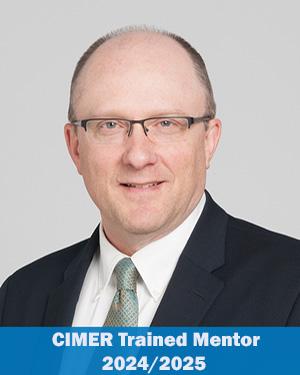Research News
01/12/2022
Adaptive Differentiation Drives Cell Repair in Diseased Tissues
Dr. Stappenbeck’s group found a new cell type that is produced by intestinal epithelial stem and progenitor cells and provides rapid structural support to damaged, high-turnover tissue and a foundation for its proper healing.

A research team led by Thaddeus Stappenbeck, MD, PhD, has uncovered a new healing mechanism that drives cellular repair in tissues damaged by disease, like the intestines in patients with Crohn’s or celiac disease. The team has coined this process “adaptive differentiation.”
In health, differentiation is the process by which an individual cell adopts a fate, becoming a more specialized cell type with a specific function. Stem cells and their immediate descendent cells, called progenitor cells, are the origin of these differentiated cells, which in turn provide structure and function to a tissue. Loss of differentiated cells occurs when tissue is damaged and is a hallmark of many diseases. Efficient replacement of these damaged tissues is key to a return to the healthy state.
“Through this study, we bridged a gap in our understanding of how stem and progenitor cells provide rapid structural and functional support to damaged, high-turnover tissue,” said Dr. Stappenbeck, chair, Department of Inflammation & Immunity.
Understanding mechanisms of repair
In the current study published in Developmental Cell, the Stappenbeck team investigated repair of the absorptive structures in the small intestine called villi. These finger-like structures are lined with epithelial cells that act as a barrier and absorb nutrients. Villi can break down during intestinal damage and need to be quickly reformed to ensure adequate nutrient absorption.
Using a mouse model of villus collapse, the team found that a population of unusually shaped epithelial cells (atrophic villus epithelial cells, or aVECs) covered the villus remnants in the damaged intestine. Further characterization of these aVECs showed that they induced a fetal-like state and differentiated in a distinctive manner adapted to the injury state.
In addition, the team obtained data analyzing single cell transcriptomes of intestinal samples from patients with Crohn’s and celiac disease, and found cells similar to aVECs as they had this adaptive differentiation signature.
“We found that the fetal state of the epithelial cells was controlled by a pathway based on the Yes-associated protein (YAP) and that this fetal state was necessary for proper villus reconstruction after injury,” said Takahiro Ohara, who is first author and a graduate student in the Medical Scientist Training Program at Washington University in St. Louis, Missouri. “This mechanism provides a map for how progenitor cells can provide support to regeneration that occurs during wound healing.”
Developing new therapies to enhance healing
“Understanding these mechanisms can lead to new therapeutic options of stimulating regeneration and repair of tissue and could provide benefits for patients with impaired healing capacity,” said Dr. Stappenbeck.
Ongoing studies in the lab will include determining whether maladaptive differentiation could drive pathology in chronic inflammation and tumorigenesis.
The research is supported by the Bill and Melinda Gates Foundation, Crohn’s & Colitis Foundation, National Institutes of Health.
Featured Experts
News Category
Related News
Research areas
Want To Support Ground-Breaking Research at Cleveland Clinic?
Discover how you can help Cleveland Clinic save lives and continue to lead the transformation of healthcare.
Give to Cleveland Clinic